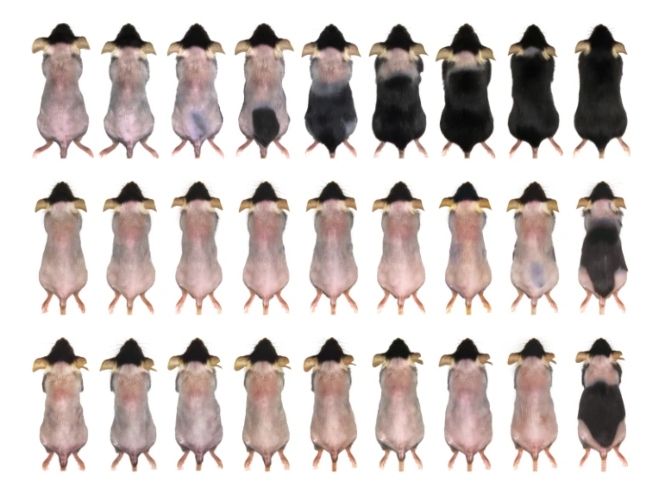While intermittent fasting has gained popularity for its potential health benefits, including weight loss and longevity, new research reveals it may come with an unexpected downside: stunted hair growth.
A study published in Cell shows that fasting can inhibit or even kill hair follicle stem cells, the very cells responsible for hair regrowth.
The Study
Researchers at Westlake University in Zhejiang, China, led by regenerative biologist Bing Zhang, studied how intermittent fasting affects hair regrowth in mice.
Over three months, mice subjected to two common fasting regimens—time-restricted eating (eating within an 8-hour window) and alternate-day fasting (fasting for 24 hours and eating normally the next day)—showed significantly slower hair regrowth compared to mice that ate freely.
The study found that fasting activated the adrenal glands, which produce stress hormones, triggering fat cells in the skin to release fatty acids. These fatty acids disrupted the metabolism of hair follicle stem cells, causing cellular damage and, in some cases, cell death.

Implications for Humans
Intermittent fasting, practiced by an estimated 12% of U.S. adults in 2023, may similarly affect human hair growth.
Ömer Yilmaz, a stem-cell biologist at MIT who was not involved in the study, expressed surprise at the findings.
“This is the inverse of what we expected,” he said, noting that fasting is generally thought to benefit stem cells.
Potential Solutions
The study offers hope for mitigating the effects on hair growth.
Applying an antioxidant cream during fasting prevented damage to hair follicle stem cells in the mice, suggesting that protective treatments could counteract the negative impact.
A Balanced Approach
While intermittent fasting may provide health benefits, such as increased lifespan and gut repair, it’s clear that not all tissues and cell types respond positively.
Those considering fasting as part of a weight-loss or wellness plan should weigh the potential effects on hair health and consult a healthcare professional if concerned.





